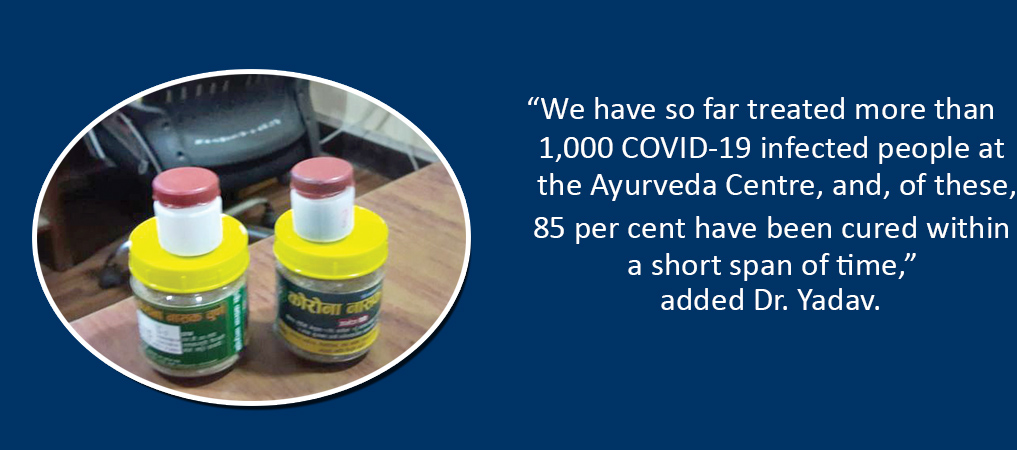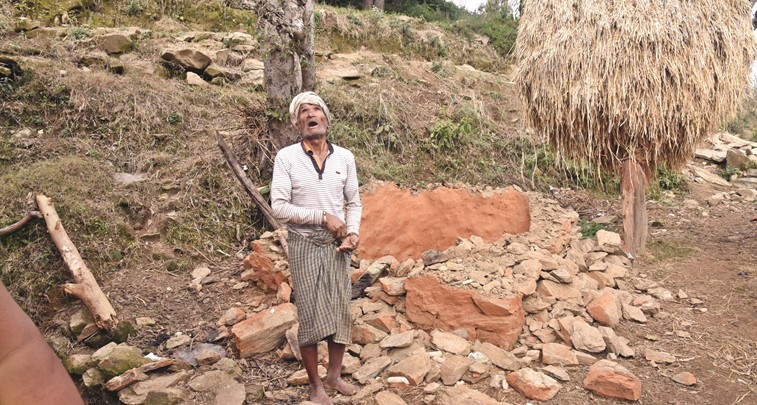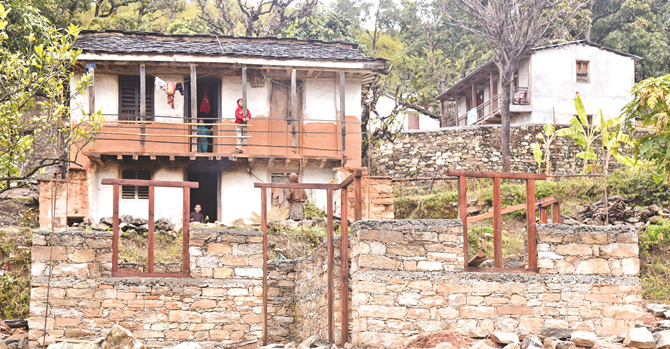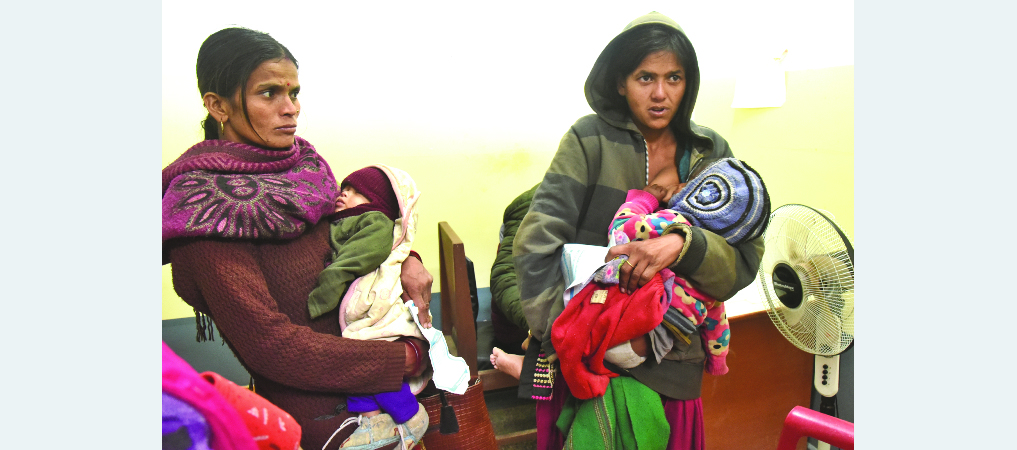Ayurvedic medicines effective for mild to moderate COVID-19 symptoms

By Ajita Rijal
Kathmandu, Nov. 8: The COVID-19 pandemic continues to grip the world for almost 11 months. Various unprecedented efforts and measures have been made by almost every nation to contain the spread of the virus.
People around the world are struggling to deal with, live with or control the virus as death tolls and infections climb. At the same time, scientists and laboratories from across the world continue to work relentlessly at researching and testing of possible vaccines and medicines.
With the absence of any vaccine yet for COVID-19, or exact medicine for its treatment, people are testing every option and alternative, including Ayurveda medicine to control the virus.
According to Ayurveda doctors, regularly consuming herbs can supercharge a person’s immunity and help to deal with chronic stress and fatigue, which can come with viral infections.
Many patients in home isolation in Nepal for mild COVID-19 infection are taking Ayurveda courses along with behavioural and dietery changes, which has benefitted their health condition.
“The Ayurvedic medicines are found effective and working mainly for people with mild to moderate symptoms. These solutions might or might not work for severe cases but can certainly ease their pain and discomfort,” said Dr. Ram Adhar Yadav, Executive Director at the National Ayurveda Research and Training Centre in Kirtipur. The Ayurvedic medicines are found effective among those COVID-19 patients who show mild and moderate symptoms, said Dr. Yadav.
Dr. Yadav also said that the Ayurvedic treatment was effective in the symptomatic relief as well as in the resolution of viral load, as the patients tested negative for COVID-19 within seven to ten days of intervention with the intake of Ayurvedic medicines.
“We have so far treated more than 1,000 COVID-19 infected people at the Ayurveda Centre, and, of these, 85 per cent have been cured within a short span of time,” added Dr. Yadav.
The Centre is providing regular Ayurvedic medicine, balanced diet, yoga, and counseling to the COVID-19 patients. “We have found that COVID-19 patients have been cured by using various Ayurvedic medicines and we are satisfied with the results,” said Dr. Yadav.
According to him, the Ayurvedic medicine prepared by mixing extract of Gurjo (Tinospora cordifolia), Adhrak and Trikatu (Sutho, Pipla, and Pepper) has been provided for COVID-19 patients staying in hospital isolation for treatment at the Ayurveda Centre, which is located outside the crowded Ring Road in serene and scenic Kirtipur.
First choice of COVID-19 patients
When Sushma Wagle, 29, of Gongabu tested positive for COVID-19, she preferred taking medicinal herbs available at home and some other Ayurvedic medicines. She had experienced headache, body pain, shortness of breath and lost taste of food.
“I started taking Ayurvedic medicine on the advice of my friend who had earlier tested positive for the virus,” she said.
“As no medicine is available for curing the disease, I preferred Ayurveda medicine, as it has no side effects,” said Wagle. Like Wagle, many other people who have mild to moderate symptoms of COVID-19 and isolate themselves at homes, the Ayurveda medicines have been their first choice.
The Ayurveda medicine not only has become a choice for COVID-19 patients, but also among healthy individuals as immunity booster and also for those who have recovered from COVID-19 after hospitalisation.
Shiva Lamichhane, 59, of Samakhusi was declared virus-free after staying in hospital for 18 days, but even after he was declared virus-free, he was still not feeling well. Body pain, headache and fatigue continued to bother him. So he also started taking Ayurveda medicines.
Meanwhile, health experts also suggest that Ayurveda medicine and herbs can heal the body but if not taken in proper dose, it may cause side effects.
Dr. Vasudev Upadhyay, Director General at the Department of Ayurveda and Alternative Medicines (DoAA), suggested following the protocols while prescribing and taking the Ayurveda medicines.
The curative management mentioned in the protocol is based on classical symptoms of disease and scientific evidences of Ayurveda and Alternative Medicines (AAM), said Dr. Upadhyay.
The AAM has issued the protocol, as it was need of the hour for preventive, curative aspects and managing complications related to COVID-19.
Though no medicine is clinically proven for curing COVID-19, the medicinal herbs can help in improving the immune system and maintaining body metabolism, lessening suffering and helping to heal the body, said Dr. Upadhyay.
Dr. Upadhyay said that some of the medicinal herbs are easily available at our homes for daily use, including turmeric, basil leaves, ginger, cardamom and cinnamon as a form of tea as they have great medical value.
However, Dr. Updhayay said that over consumption and taking Ayurvedic medicine without a doctor's prescription may cause many side effects among people. “So one should be conscious of the quantity one consumes and always consult with doctors for proper doses,” said Dr. Upadhyay.
Increasing demand
Director at Ayurveda Hospital, Nardevi, Dr. Pradip KC, said that the demand for herbal medicines has increased with the spike of COVID-19 cases. The mixture of 12 various medicinal herbs ‘Jesthawasadi’, known as immune system booster, is on high demand, said Dr. KC.
The regular intake of the Jesthawasadi has increased among frontline workers, security personnel, doctors, politicians, officials and general people of late, said Dr. KC. The hospital has already distributed around 40,000 packs of the mixture from mid-August this year. Now, around 700 packs of mixture are being distributed on a daily basis.
The mixture consists of 12 herbs, namely, Asuro, Talispatra, Parpatak, Priyangu, Nagakeshar, Jatifal, Lwang, Sukumel, Dalchini, Bamshalochan, Gurjo and Jethimadhu. It is scientifically proven that these medicinal herbs are effective in controlling viral common cold, seasonal flu, sore throat, indigestion and headache, said Dr. KC. “If the government provides necessary budget, we have planned to produce Jesthawasadi in liquid and tea-bag form from this fiscal year,” said Dr. KC.
The concerned authorities must promote medicinal herbs and their intake to keep any type of infection at bay, said Dr. KC. The intake of medicinal herbs must go together with frequent washing of hands, wearing masks and social distancing to contain COVID-19, added Dr. KC.
Recent News

Do not make expressions casting dout on election: EC
14 Apr, 2022
CM Bhatta says may New Year 2079 BS inspire positive thinking
14 Apr, 2022
Three new cases, 44 recoveries in 24 hours
14 Apr, 2022
689 climbers of 84 teams so far acquire permits for climbing various peaks this spring season
14 Apr, 2022
How the rising cost of living crisis is impacting Nepal
14 Apr, 2022
US military confirms an interstellar meteor collided with Earth
14 Apr, 2022
Valneva Covid vaccine approved for use in UK
14 Apr, 2022
Chair Prachanda highlights need of unity among Maoist, Communist forces
14 Apr, 2022
Ranbir Kapoor and Alia Bhatt: Bollywood toasts star couple on wedding
14 Apr, 2022
President Bhandari confers decorations (Photo Feature)
14 Apr, 2022








